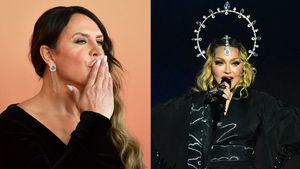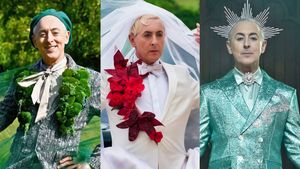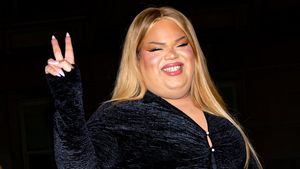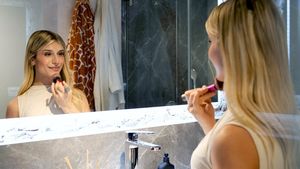The U.S. Supreme Court ruled Friday that citizens do not have “a fundamental liberty interest” in bringing noncitizen spouses to the country, leading Justice Sonia Sotomayor to issue an impassioned dissent warning that the court is on the way to undermining marriage rights for same-sex couples.
The court’s 6-3 ruling came in the case of Department of State v. Muñoz, with all conservative justices in the majority and Sotomayor’s dissent joined by fellow liberals Ketanji Brown Jackson and Elena Kagan.
Sandra Muñoz is an American citizen who married Luis Asencio-Cordero, a citizen of El Salvador, in 2010. They applied for an immigrant visa for Asencio-Cordero so they could be together in the U.S. The U.S. consulate in El Salvador rejected the application, saying there was evidence that Asencio-Cordero was a member of a criminal gang, based on the tattoos he had. An expert later concluded that the tattoos were not a sign of gang affiliation.
Muñoz sued the State Department, saying the consulate’s decision violated her constitutional liberty interests and her right to due process of law. A trial court ruled against her, but the U.S. Court of Appeals for the Ninth Circuit reversed that ruling. The Ninth Circuit found she had a “protected liberty interest” in obtaining the visa for her husband. Visa denials are not usually subject to court review, but the appeals court rule that the consulate had forfeited its insulation from this review by not giving Muñoz more information early in the process.
But “the Ninth Circuit got it wrong,” Justice Amy Coney Barrett, who was appointed by Donald Trump, said in court Friday, according to Courthouse News Service. “This case boils down to who gets to decide, and the answer is the executive branch.”
“A citizen does not have a fundamental liberty interest in her noncitizen spouse being admitted to the country,” Barrett wrote in the ruling. “Under the doctrine of consular nonreviewability, an executive officer’s decision ‘to admit or to exclude an alien’ … ‘is final and conclusive,’ and not subject to judicial review in federal court,” she continued, quoting the ruling in a case called Knauff v. Shaughnessy.
In her dissent, Sotomayor quoted the 2015 marriage equality ruling, Obergefell v. Hodges: “The right to marry is fundamental as a matter of history and tradition.” She wrote “that there is no question that excluding a citizen’s spouse burdens her right to marriage, and that burden requires the Government to provide at least a factual basis for its decision.”
“Almost 10 years ago, this Court vindicated the expansiveness of the right to marriage,” she continued. “It upheld the right of James Obergefell and his terminally ill husband, John Arthur, to have their marriage from Maryland recognized in Ohio.” She also referenced Loving v. Virginia, the 1967 ruling that struck down bans on interracial marriage.
“Muñoz may be able to live in El Salvador alongside her husband or at least visit him there, but not everyone is so lucky,” Sotomayor pointed out. “The majority’s holding will also extend to those couples who, like the Lovings and the Obergefells, depend on American law for their marriages’ validity. Same-sex couples may be forced to relocate to countries that do not recognize same-sex marriage, or even those that criminalize homosexuality.”
“By leaving U. S. citizens without even a factual basis for their spouses’ exclusion, the majority paves the way for arbitrary denials of a right this Court has repeatedly held among the most important to our Nation,” she continued, referring to the right to marry.” The court has gone too far, she added, making “the same fatal error” it did in 2022 in Dobbs v. Jackson Women’s Health Organization,which overturned Roe v. Wade and its national guarantee of abortion rights: It required too “‘careful [a] description of the asserted fundamental liberty interest.’”














































































